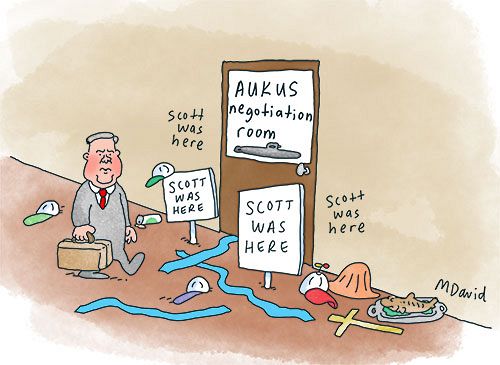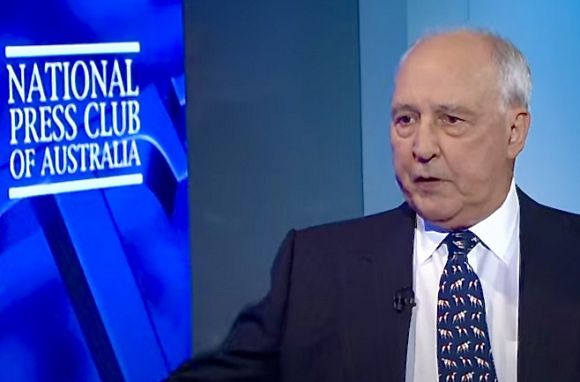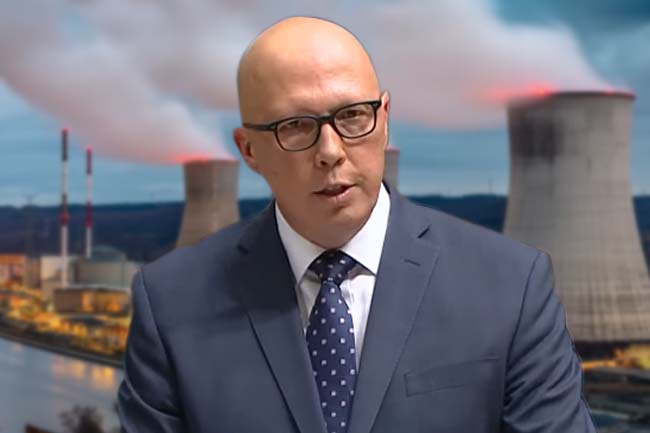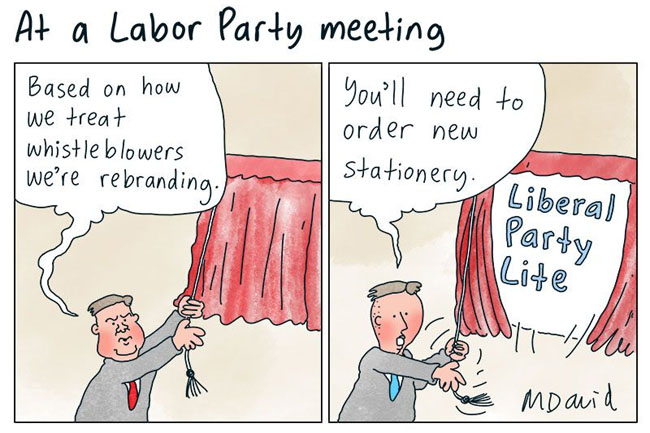Social media and independent news sites have had a significant effect on opening up the political debate over the AUKUS deal, writes Professor John Quiggin.
ONE OF THE MOST useful ideas in thinking about political debate is that of the Overton window, named after American political scientist Joseph Overton. The Overton window is the range of ideas considered permissible in public discussion at any given time. Overton’s crucial insight was that, while active participants in political debate could only take positions within the window of acceptable views, outside bodies like think tanks could help to shift it.
Overton was a free-market libertarian (or, more precisely, propertarian) active in the 1990s. He used the concept to explain how the free-market think tanks that proliferated in the late 20th Century help to move propertarian and neoliberal ideas from the fringes of public debate to the centre. Much the same idea was expressed in Richard Cockett’s book on Right-wing think tanks in the UK, Thinking the Unthinkable.
Australia provided a textbook example of this process. The path to the political Right for both Labor and the L-NP was opened by think tanks such as the Institute of Public Affairs and the Centre for Independent Studies. Both remain active, though their role has diminished as the failure of neoliberalism has become more evident.
These bodies were supplemented by a range of “astroturf” organisations named for prominent historical figures who (in most cases) would have been horrified, or at least bemused, by the misuse of their names. The list included the HR Nicholls Society (advocated dismantling the industrial relations system and particularly the Arbitration Commission), the Lavoisier Group (climate science denialists) and the Bennelong Society (opposing native title). All were established by Right-wing activist Ray Evans and were run from his offices at the Western Mining Corporation.
Although the extreme views of these groups did not always prevail, they shifted the Overton window far to the Right. The Arbitration Commission is gone and wages have stagnated. Action on climate change has been stalled and science denialism remains part of public debate. Privatisation and deregulation have been largely discredited, but their effects remain
The Overton window provides a way of thinking about current policy debate, particularly the treatment of the AUKUS deal by the mass media. At one end of the Overton window is the hyperbole of warmongers like Matthew Knott gushing that Australia is ‘no longer a middle power’ to the more cautious view that perhaps we should have had some public discussion before such a major change.
The mass media has been vigorous in policing even the slightest dissent within the political class, such as the questions raised, cautiously, by a handful of Labor backbenchers. It has responded with fury to criticism from those it can’t control like Paul Keating and Malcolm Turnbull. And, as usual, it has done its best to ignore criticism from outside the Overton window.
Although think tanks like the Australia Institute still play a role, the biggest challenge to the mainstream media’s role in policing debate has come from social and alternative media. The ease of communication through the internet is reflected in social media sites like Facebook, Twitter and more recently Mastodon, which have largely displaced older models of blogging. Equally important has been the proliferation of online magazines like Independent Australia and Crikey, and the rise of single-author newsletters distributed through Substack and Medium.
At least regarding issues like AUKUS, there is an Overton window for social and alternative media. Almost all opinions are critical, with the dominant viewpoint being that the project is economically wasteful and puts Australia in danger of being dragged into war. The most positive views to be found on Twitter are “Labor inherited this from Morrison” and “cheer up, it will probably never happen”. The only point of contact with the political class Overton window is the view that we need to discuss this further.
Traditional mass media still has a greater reach than online alternatives. But it can no longer constrain debate within the Overton window defined by the political class.
John Quiggin is Professor of Economics at the University of Queensland. His latest book, 'Economics in Two Lessons: Why Markets Work So Well and Why They Can Fail So Badly', is out now from Princeton University Press. You can follow John on Twitter @JohnQuiggin.
Related Articles
- Australia's foreign policy now run by the military
- Australia’s submarine deal is a disaster and we know who to blame
- CARTOONS: Mark David goes nuclear with the defence budget!
- Australian economy first casualty of AUKUS pact
- Stopping Australia's path to America's war
 This work is licensed under a Creative Commons Attribution-NonCommercial-NoDerivs 3.0 Australia License
This work is licensed under a Creative Commons Attribution-NonCommercial-NoDerivs 3.0 Australia License
Support independent journalism Subscribe to IA.














